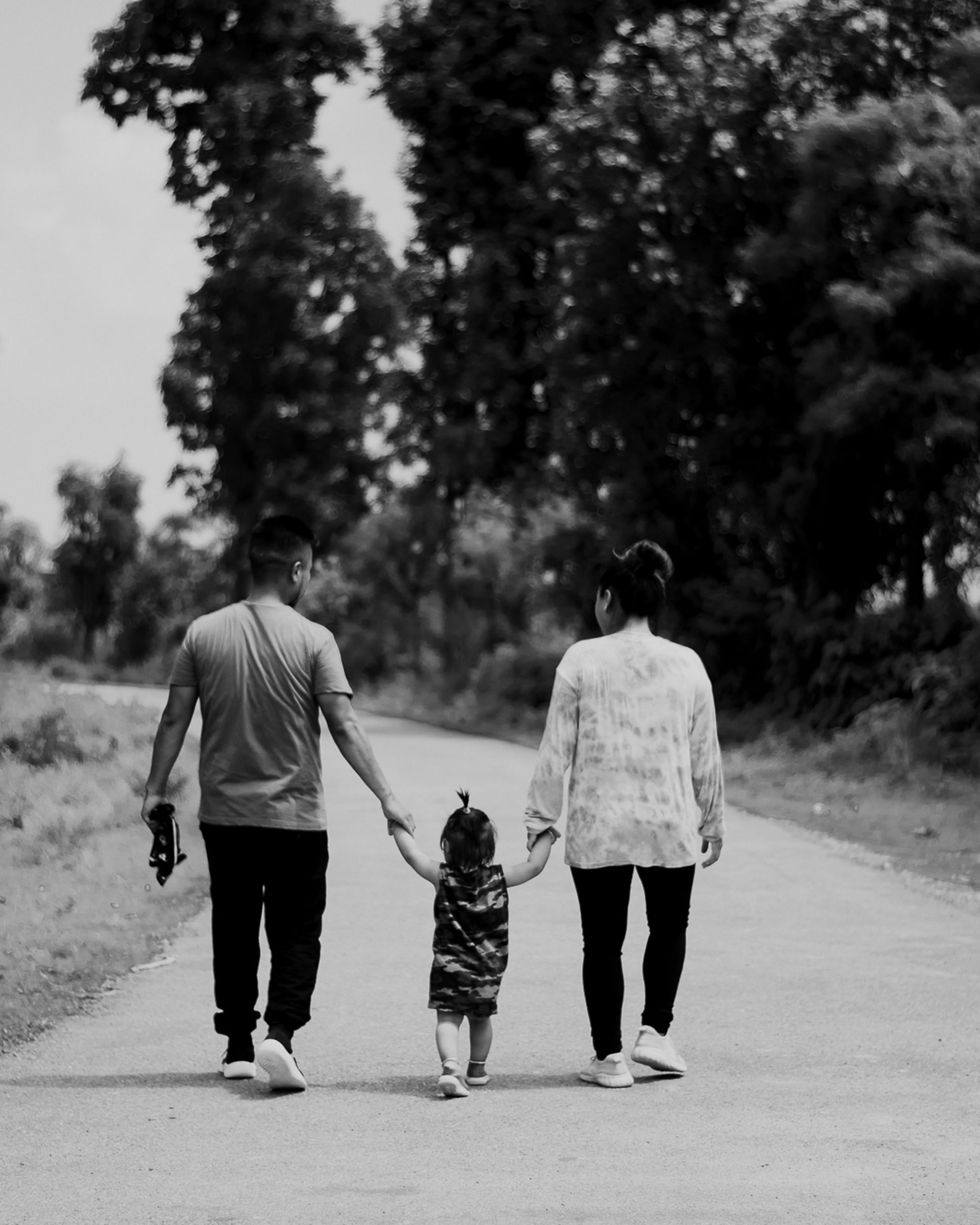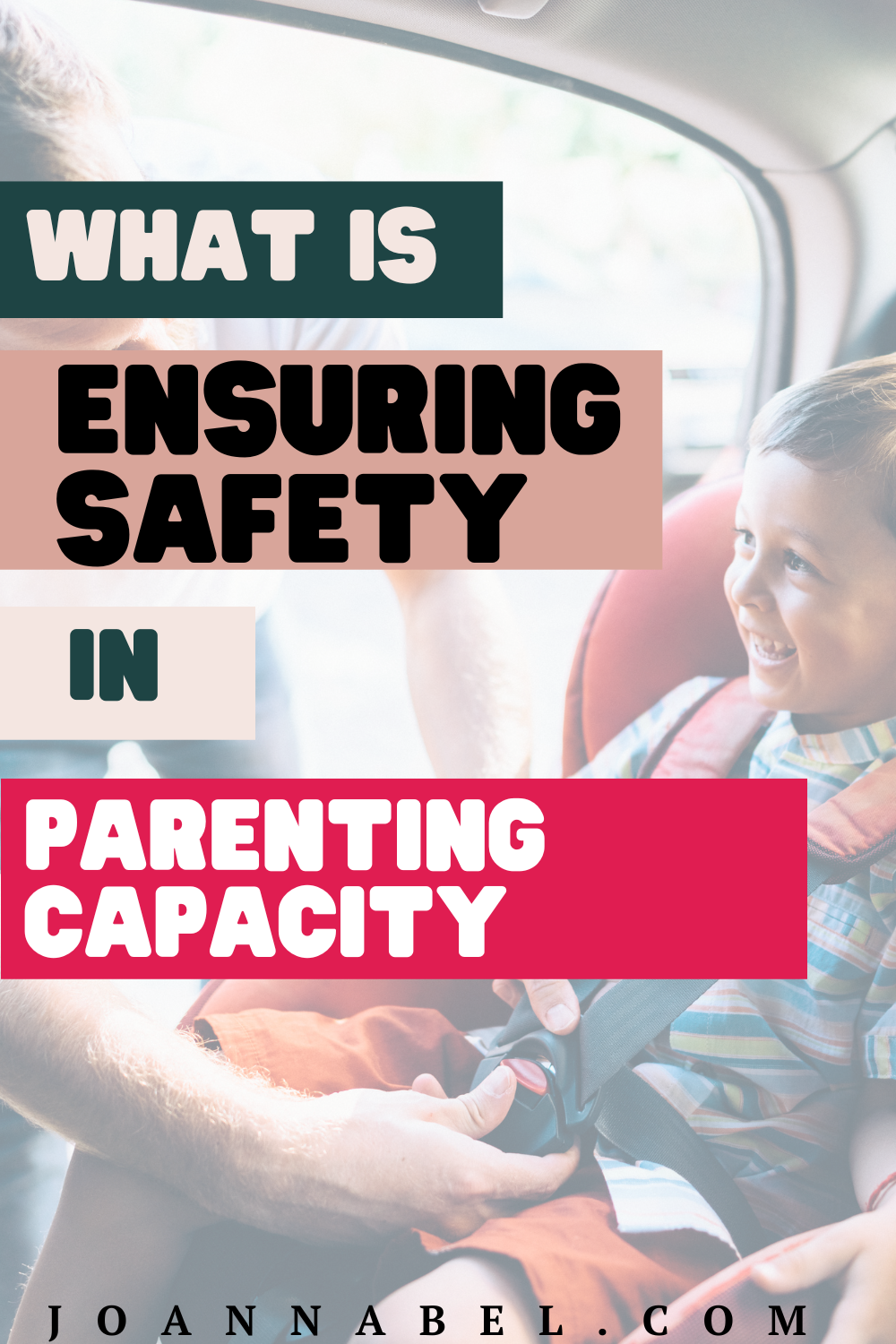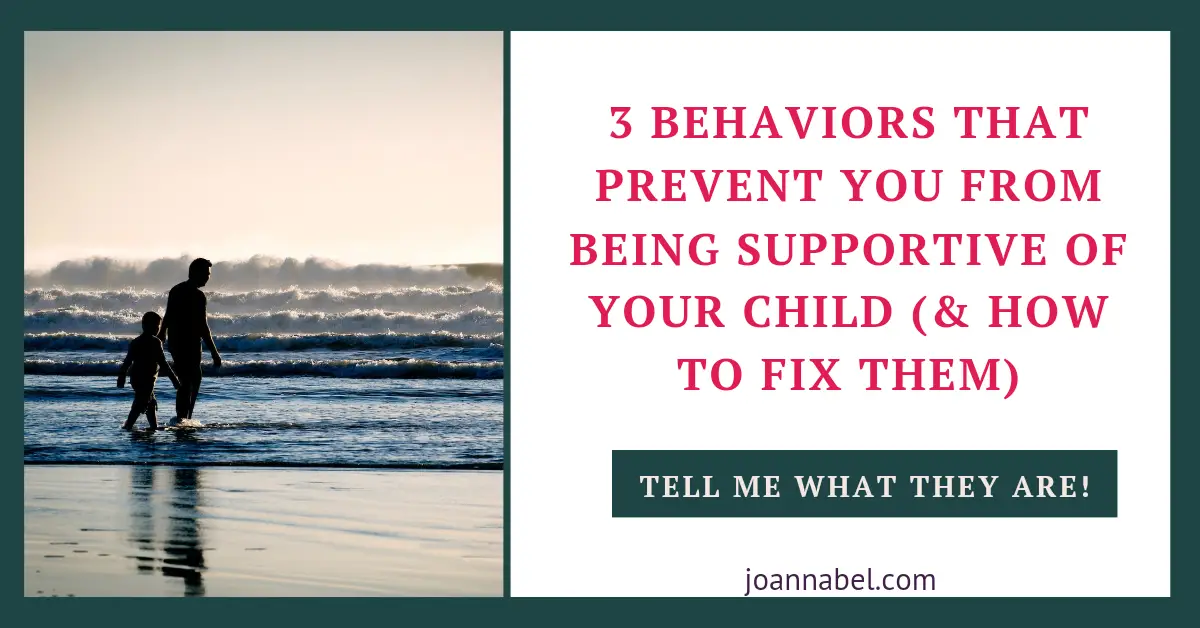Are you wondering about ensuring safety as a dimension of parenting capacity? If this is so, let’s cover this topic!

What Is Ensuring Safety As A Dimension Of Parenting Capacity
Ensuring safety relates to a parent’s capability to keep a child safe from harm and danger. More precisely, safe from harm that can be caused by human behavior – adults and kids, or as the result of an unsafe space, object, or situation.
We’ll talk about the most important information concerning ensuring safety. But also what to focus on if your capability to ensure safety is under influence of complex life situations.
And I’ll provide a personal recommendation you can act upon immediately near the end of the post.
So stay with me to get the crucial insights regarding ensuring safety as a dimension of parenting capacity!
Note: Even though I am a licensed clinical social worker (LCSW), I am not your licensed clinical social worker (LCSW). This means engaging with our website is not considered a professional social worker and client relationship. This also means you should not consider this information as professional advice. Although we do put in every reasonable effort to provide the most accurate and reliable information, this does not replace professional advice, and you should not rely only on them. You still might need to consult a professional to introduce your particular situation, issue, problem, or position. Read our full Disclaimer here.
WHAT IS PARENTING CAPACITY
Parenting capacity is the parent’s competence and capability to recognize the child’s needs, give them a priority, and respond to them in an empathetic way, in order to provide protection, care, and necessary conditions so a child can grow and develop.
You’ve probably heard about the assessment of parenting capacity. The purpose of assessing parenting capacity is to get closer insights into how well parents can respond to the child’s developmental needs. To be able to understand this, we must assess certain areas or dimensions that can provide intel concerning this.
Those areas are the dimensions of parenting capacity. And they are:
- ensuring safety,
- basic care,
- emotional warmth and responsiveness
- guidance and boundaries,
- stability, and
- stimulation.
I wrote a blog post that covers these 6 dimensions of parenting capacity and you can find it here: What Is Parenting Capacity And How To Find Balance As A Parent?.
Note that parenting capacity isn’t static or inflexible. And it isn’t to be reduced to only some psychological factors of parenting. Or the individual skills and capacities of a parent that are fixed or even innate.
You may have gotten this impression as a result of society’s constant finger-pointing at parents for whatever happens with one family with kids.
This is probably due to old concepts or better-said misconceptions about individual characteristics being all that influence the quality of one’s life and wellbeing. These misconceptions are still being pretty strongly imposed.
Instead, I want you to take out of this a realization that parenting is going through a continuous process of change and influence that’s depending on the conditions and circumstances a family encounters in the family life cycle.
This means there is a constant exchange within the family, but also between the family and social environment. Family is a part of society and the values and culture of that society are reflected in a family.
Let’s see what can affect parenting capacity.
WHAT AFFECTS PARENTING CAPACITY
I’ll mention the circumstances that have the potential to obstruct parenting capacity or parenting competence. Considering they create the most doubt and confusion (and fear, too) in terms of outcomes on the child’s functioning.
So what affects parenting capacity are: physical disability, mental illness of a parent, intellectual disability, psychoactive substance abuse, criminal behavior or lifestyle, violence between intimate partners (domestic violence), parent’s trauma, and socioeconomic conditions.
These specific circumstances have the potential to limit parenting capacity. Meaning they can put a child at risk, and even endanger their health or life. BUT that doesn’t mean that simply having them as parts of the family dynamics means we have weakened or limited parenting capacity.

It’s very important to note that children living in families affected by these circumstances aren’t necessarily at risk of long-term negative outcomes. This means we need to be very careful about stereotypical perspectives and prejudices about these families and those kids.
We need to focus on strengths and observe things from the perspective of strengths. Or we’ll contribute to these families facing stigma and even marginalization.
DIMENSIONS OF PARENTING CAPACITY
You have many different assignments as a parent, that you take on to make sure you provide the necessary conditions for a child to grow, develop, and progress.
These basic requirements need to fit the child’s age, meaning they have to be adapted to the child’s developing and evolving capacities. For example, you won’t expect a 5-month-old baby to pick up the toys from the floor and arrange them.
So those basic conditions have to match the phase in the child’s development.
Of course, this should never include pressure or demand for the parent to become some ideal prototype of a perfect parent. Firstly, nobody could ever define what an ideal parent is. Because nobody can fit every child or every situation into one box and because every single child has unique characteristics.
Also, children and families live in different social environments, cultures, communities, and conditions. At the same time, every parent is different. Not to mention that access to important services and support aren’t the same for all parents.
Therefore, instead of trying to standardize every single thing, we should learn to embrace and empower diversity.
And we should always focus on the necessary minimum parents need to provide for the child to thrive. Instead of trying to seize perfection no matter what or impose personal high criteria on other parents.
Moreover, the criteria for good parenting capacity are not to be defined by our personal values and aspirations. Since we all have so many of them.
This means we shouldn’t confuse good parenting capacity with our personal beliefs, aspirations, and (sometimes too high) criteria. Actually, what you as a parent need to do is achieve just the required necessary minimum.
Now, let’s talk about ensuring safety as a dimension of parenting capacity.
WHAT ENSURING SAFETY AS A PARENTING CAPACITY DIMENSION IS
Ensuring safety relates to a parent’s capability to keep a child safe from harm and danger. Both parents are equally responsible for this. Except when there’s an absence of one of them or some other specific circumstance.
A child needs to be safe from harm that can be caused by human behavior – adults and kids. Or can be the result of an unsafe space, object, or situation.
Additionally, a parent has to develop a sensibility to predict and prevent dangers while finding a balance regarding protection.
Again, this should be adapted to the children’s age and maturity. Since children become more and more independent in different areas as they grow. And parents need to promote, motivate and strengthen their independence.
But this also implies you should always keep away from overprotecting children. Because they become capable of self-protection to a certain degree according to their age.

Quite the contrary, you should make an effort to encourage their independence in a way that is suitable for THEM. Not for you as a parent.
For example, over-protection can lead to struggling with anxiety. Considering this way a parent is sending the message to a child that nothing is safe enough and scaring or intimidating them this way.
And these parents almost always get annoyed with their ”anxious” children when they are all grown up, and yet still fail in being independent or taking any kind of risks.
Well, of course they’re not independent enough when they were denied the right and opportunity to develop independence.
It’s useful to note that living without any kind of risk in life affects the quality of that life. So, maybe it’s better to try to stop this from happening on time.
We need to empower our children to be more independent and help them develop skills for protecting themselves when the time is right.
So we all have to learn how to find a fine balance regarding protection, according to the child’s age, maturity, and capacities.
What I meant to say is that overprotecting the child, when we should instead enforce independence, can be detrimental for the child on many levels.
At the same time, being ignorant when it should be obvious to us that a child needs immediate protection.
Especially when it comes to the youngest children, can be the most harmful of all.
This means that if we leave them or keep them in an unsafe room, with unsafe people, or alone when they are too young to stay alone, then it’s obvious, that we’re not protecting them enough. And we need to strengthen parenting capacity.
So it comes to (adaptation based on Bentovim, et al, 2009):
#1 Safe attachment pattern between the child and the parent
- As opposed to insecure (ambivalent-insecure or insecure-avoidant) and disordered/disorganized attachment patterns – where children are in a position to develop adaptable strategies to make sure parents provide basic care and protection (to persuade the parent).
- Parents are RESPONSIVE to the child’s needs and children (including infants in their first months) know they’ll l receive protection, care, comfort, etc.
- Parents help infants, toddlers and young children regulate emotion, tension, unease, discomfort, etc, so they get the message from a parent that these are manageable and that they’ll pass.
- A child feels safe and has a safe/secure space/base where it can return to at any moment. After it finishes free experiencing and exploring the environment.
- A parent/caretaker recognizes, acknowledges, and (positively) responds to a child’s emotions; helps the child develop competence to successfully deal with their emotions, thoughts, and behaviors (as well as others’ behavior).
- A child has an affectional attachment figure (person), as opposed to the child who doesn’t and is affection-deprived.
#2 Parents find and keep a fine balance regarding the protection
- They understand the purpose of protection and look at protection realistically – they avoid overprotection and pressure, and they do protect enough.
- They believe their child can learn to master self-protection so they’re empowering and strengthening the child’s capacities and skills.
- They adapt their behavior according to the child’s evolving capacity to take care of itself.
- They are responsible and confident and their protection is thorough.
- Their protection is consistent and it doesn’t have any critical breaches.
- Their protection style shows consistency, as opposed to occasional, sporadic, inconsistent protection providing.
- They are self-assured about their ability to protect the child.
#3 Parents are providing safety at home according to the child’s age
- Parents adapt the (physical) space according to the child’s age and self-protection skills.
- They keep potentially dangerous in-house objects out of the kid’s reach according to the child’s age and maturity.
- They have kids in their sight around the house and yard according to the kid’s age and maturity (and level of independence).
- A child is free and empowered to explore and play, in an environment that is safe enough.
#4 Parents are protecting the child from dangerous people and preventing their access to the child
- Parents are capable of understanding and detecting which contacts are risky contacts (persons or groups).
- Parents prevent high-risk contacts.
- Parents have learned to spot changes in a child’s behavior that associate with abuse, and are taking it seriously.
- They protect the child after the risky contact occurred; they take action to prevent it from repeating and support the child (when it comes to peer violence all of this can be challenging – the best tip is to take action by priority).
- Parents take child’s worries about safety into consideration and seriously.
- Parents respond to safety warnings regarding the child that come from other persons outside the family.
If you found the information on the blog helpful & inspirational and you feel like giving back, you can do it by clicking the donate button after entering amount you’re comfortable with. I’ll use it to create and deliver more useful content and resources like this. Thanks for your precious contribution!
#5 Parents have direct or indirect control of/insights on other places a child is staying
- Parents are familiar with the child’s whereabouts.
- Parents are familiar with their child’s contacts outside the family.
- Parents are in continual/regular touch with the preschool/school representatives.
- Parents are cautious enough about every person that interacts with a child, alone or in a group (coaches, teachers, child sitters, etc).
- Parents should be cautious about the signals a child is sending about their encounters with these people, and do not assume that their respectable profession implies that the child will be safe with them. Always TRUST your child about what they’re telling you ( remember that it’s easier to deal with potential lies later, than with being too late to prevent danger and potential abuse).
What is important as well, is to be aware when you as a parent have too much on your plate. Life can sometimes be pretty uncertain and relentless.
Those are complex situations when the child needs some additional support, adjustments, or caution when it comes to providing safety and protection. They can be:
- Sickness or challenges/disability of a child or other family member, violence, or other hurtful experiences which cause vulnerability, exhaustion, or role intertwining.
- More people take care of the child, especially if they’re unfamiliar enough.
- Experiences of separation, divorce, death, and grief.
- Child disability as a risk for peer violence.
- Substance abuse by parent or child.
- Parental issues or domestic violence.
- A parent has a disability that affects the providing of care, etc.
Note: If any or more of these are present in the family dynamics, that doesn’t mean that safety issues will exist.
LIVE Q&A And Consultations with Jovana (WISHLIST)
Want a chance to get included in live weekly calls with me and get access to my expert insights, advice, recommendations, and guidance for your unique situation?
Consider signing up if you are aiming for:
- achieving tremendous child-parent relationships with the least effort possible as you learn what to focus your attention to
- attuning to healthy child development practices without losing yourself in the process and ignoring your human needs, rights, and aspirations for your life
- understanding and responding to your and your child’s needs better and carefully easing the tension between the two
- having your most pressing questions and concerns addressed and ongoing support
- getting skilled in honoring the child’s best interest in each life situation with the help of a few key rules and principles (child wellbeing, independence, autonomy, participation, and equality)
- experiencing a supportive and cooperative relationship with the other parent or a co-parent even in high-conflict circumstances
Address your doubts, concerns, and challenges, but also reflect on your situation through the experiences of others in this small and supportive community.
You’ll unlock monthly access for 60% off of my current hourly rate!
If you are in one or more of these positions and challenges as a parent, here are some general tips:
- Inform yourself and learn as much as possible about the situation you are facing and the child’s additional safety needs and RISKS. Or about the ways their needs are to be met optimally.
- Inform yourself about any resources and services in your local community that provide different types of support or coordination of services.
- Look for others who are in a similar situation and can understand you the best to connect. But always be careful, because your vulnerability could be exploited.
- Find out if there is a support group in your local community that fits your situation.
- Try to avoid isolation. And if you have individuals in your life who enforce it (even if they think they are helping), set boundaries. Or consider distancing from them if nothing can be changed.
- Have a realistic expectation when it comes to others obtaining a deep understanding of your exact situation. Try to save energy whenever you notice you have to explain yourself too much to someone. ESPECIALLY if this is repeating. THAT’S NOT SUPPORT. And it will lead to exhaustion, so find a way to limit your efforts. Use your strength carefully because you need it!
- Ask for help. Don’t wait until you’re negatively affected by severe exhaustion or you’re burned out. You have nothing to prove to anyone. Nobody is in your shoes.
- Be patient and kind to yourself. You’re doing the best you can!
I hope this helps.
Latest Post:
- The Biggest Benefits Of Adopting A Dog For Your Family (5)

- How To Turn Crafting Into Family Fun Time (6 Ideas)

- Creative Ways To Play With Kids Without Technology

- How To Make Gift-Giving More Special For Kids (4 Ideas)

- How To Do A Prenup Online (What To Expect)

- 5 Strategies To Help You Make More Time For Your Family

FINAL THOUGHTS ON ENSURING SAFETY AS A DIMENSION OF PARENTING CAPACITY
And there you go! That was the most important information concerning ensuring safety as a dimension of parenting capacity. I hope you found this helpful and practical.
And if you have, share it with others whom you believe will benefit from this post!
See you in my next one!
Continue reading:









Leave a Reply